How to replace a range glass cooktop
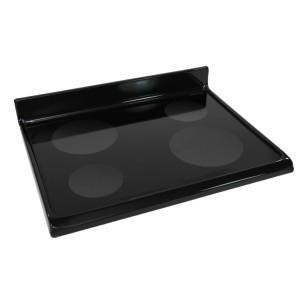
The ceramic glass main top on a range provides a flat, smooth cooking surface; radiant elements attached under the main top provide heat. If the glass cracks or is otherwise damaged, stop using the cooktop elements until you can replace the glass top with a manufacturer-approved range part, following the steps in this DIY repair guide and video. Otherwise, the heat of cooking could expand the crack, and the glass could shatter.
This repair procedure is for installing the stove top replacement glass on Kenmore 790-series and Frigidaire free-standing ranges. You also can use the same basic stovetop replacement glass top installation process on many Whirlpool, KitchenAid, Maytag, Amana, GE, LG and Samsung ranges.
How to replace a range glass cooktop video.
Instructions
- 01.
Turn off power to the range
Unplug the range or shut off the circuit breaker for the range.
Tip: Shutting off the circuit breakers for the range works best for this repair because you don’t have to pull the range out of the cabinet. If you pull out the range to unplug it, use cardboard under the range to protect the floor from scratches. - 02.
Open the cooktop
Open the oven door completely and remove the screws from the bottom front lip of the glass cooktop frame.
Carefully pull the cooktop assembly slightly forward to release the front lip of the glass cooktop frame from the front cabinet support bracket. Raise the front of the cooktop slightly to release the frame sides from the front support bracket then pull the cooktop forward to release the hinge tabs from the slots in the backguard.
Lift the front edge of the glass cooktop and prop it open.
Place the prop at the front of the range under the center of the cooktop’s front lip where it's steady, so the cooktop won't fall. Avoid damaging the oven cavity insulation when propping open the glass cooktop.

PHOTO: Remove the cooktop screws.

PHOTO: Prop open the cooktop.
- 03.
Release the surface elements from the cooktop
Without disturbing the prop, carefully remove the screws from the front surface elements’ support bracket and lower the front elements and bracket onto the oven insulation.
Repeat the process to lower the rear surface elements onto the oven insulation.
Tip: Hold the surface elements’ support bracket to keep it from falling as you remove the second screw or have a helper hold the bracket to prevent the elements and bracket from falling.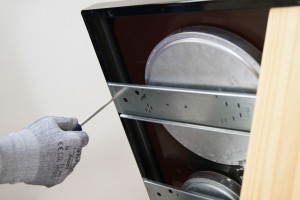
PHOTO: Remove the front bracket screws.
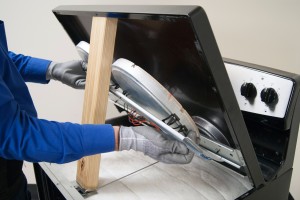
PHOTO: Pull off the front elements.
- 04.
Remove the cooktop
Carefully remove the prop and lift the cooktop assembly up and off the range.
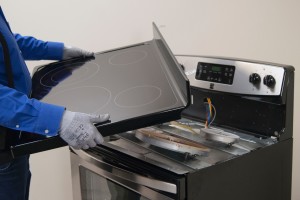
PHOTO: Remove the glass cooktop.
- 05.
Transfer the hinge tabs to the new cooktop
Using a slot screwdriver, release each hinge tab from the old cooktop.
Bend each hinge tab slot inward to ensure a tight fit and install the tabs on the new cooktop.
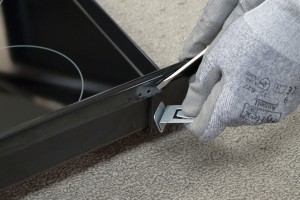
PHOTO: Transfer the hinge tabs to the new cooktop.
- 06.
Put the new cooktop into position
Place the new cooktop on the top of the range and prop it up securely.
- 07.
Attach the surface elements
Attach the rear surface elements’ support bracket and surface elements to the new cooktop.
Repeat the process to attach the front surface elements.
- 08.
Reattach the cooktop
Carefully remove the prop that's supporting the cooktop and lower the cooktop.
Tuck the front lip of the cooktop frame under the front cabinet support bracket and lower the sides of the cooktop frame over the ends of the front support bracket. Push the cooktop back, inserting the hinge tabs into the backguard slots.
Install the mounting screws in the front lip of the cooktop frame.
Close the oven door.
- 09.
Restore power to the range
Plug the range back into the electrical wall outlet or turn on the house circuit breakers for the range.
If you pulled out the range to unplug it, push the range into position and ensure that the rear leveling foot properly engages with the anti-tip bracket so the range doesn’t fall forward when you open the oven door and pull out a loaded oven rack.
Most common symptoms to help you fix your ranges
Choose a symptom to see related range repairs.
Main causes: broken oven door lock assembly, wiring failure, electronic control board problem…
Main causes: broken broiler element, weak or broken broil burner igniter, control system failure, faulty temperature sen…
Main causes: power supply problem, control thermostat or electronic control board failure, broken element, bad burner ig…
Main causes: bad bake element, broken burner igniter, control system failure, blown thermal fuse, faulty temperature sen…
Main causes: food splatters, spilling food on the oven door, allowing liquid to drip through oven door vent when cleanin…
Main causes: faulty temperature sensor, electronic control board problem, control thermostat failure, weak burner ignite…
Main causes: power supply failure, blown thermal fuse, bad relay control board, damaged terminal block, wiring failure…
Most common repair guides to help fix your ranges
These step-by-step repair guides will help you safely fix what’s broken on your range.

How to replace a range oven door switch
The oven door switch detects whether the oven door is closed and helps control the oven light. Replace the switch if it …
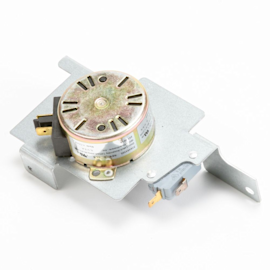
How to replace a range oven door lock assembly
Oven door not locking? You can replace the lock assembly in less than 30 minutes. Here's how.…
Effective articles & videos to help repair your ranges
Use the advice and tips in these articles and videos to get the most out of your range.

Learn how to clean and maintain your stove to keep it in top shape.…

Learn about all the convenient features on our Sears PartsDirect website that make your parts purchases easier.…
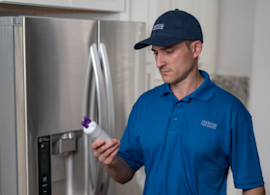
Get answers to frequently asked questions about Sears and Sears PartsDirect.…
